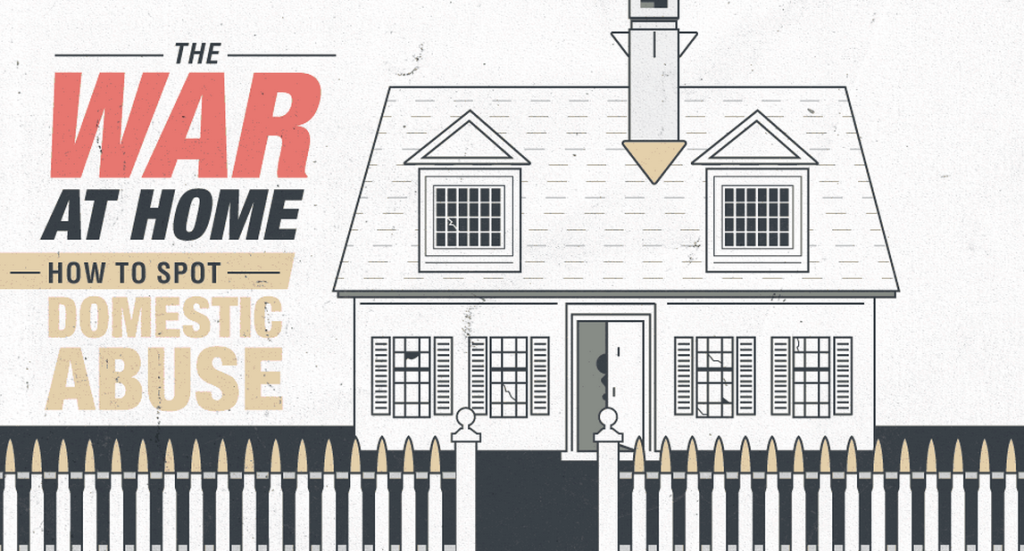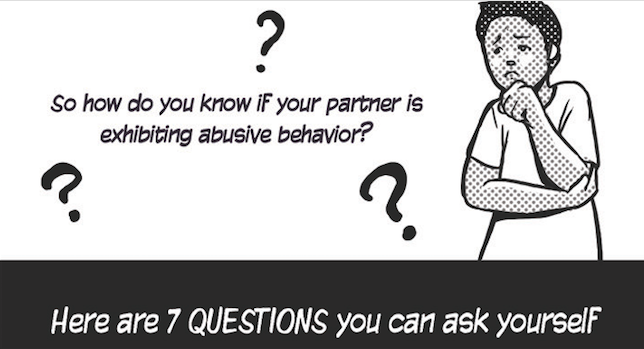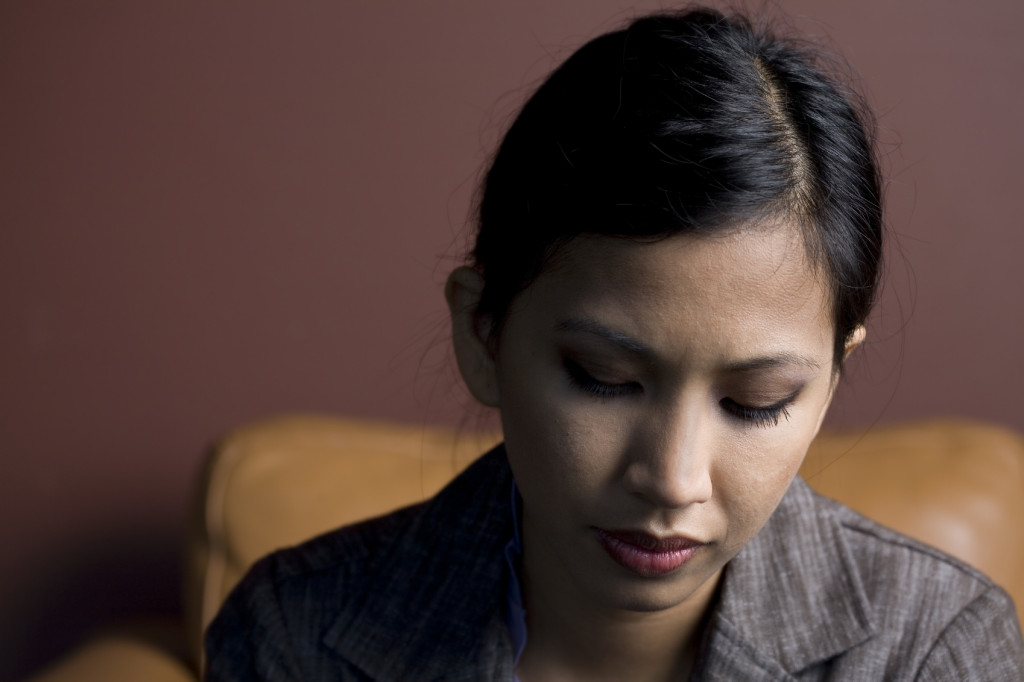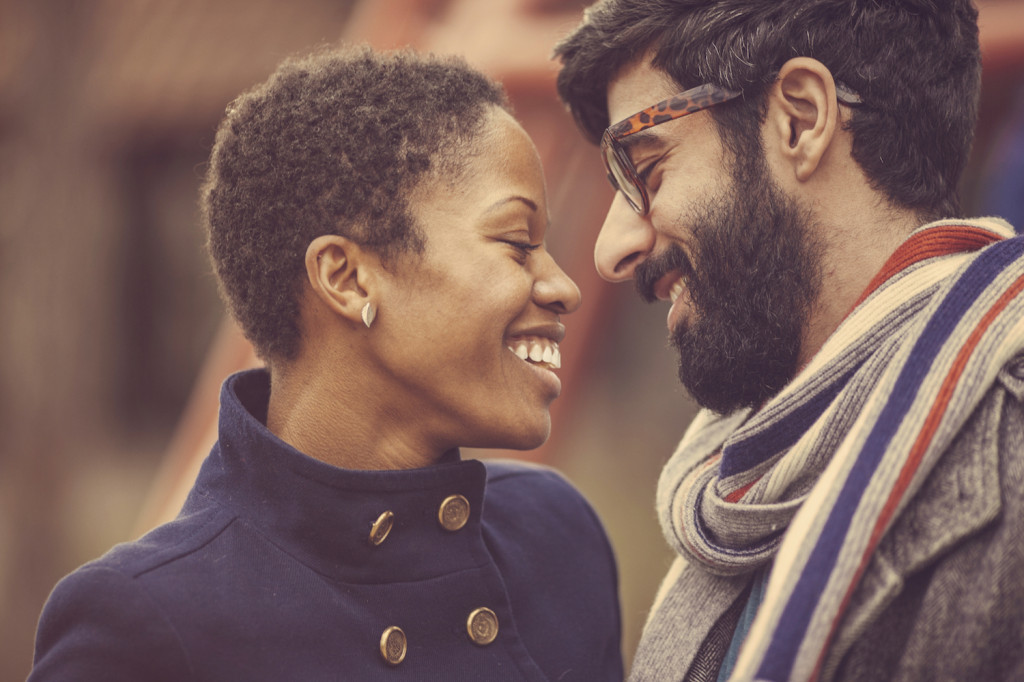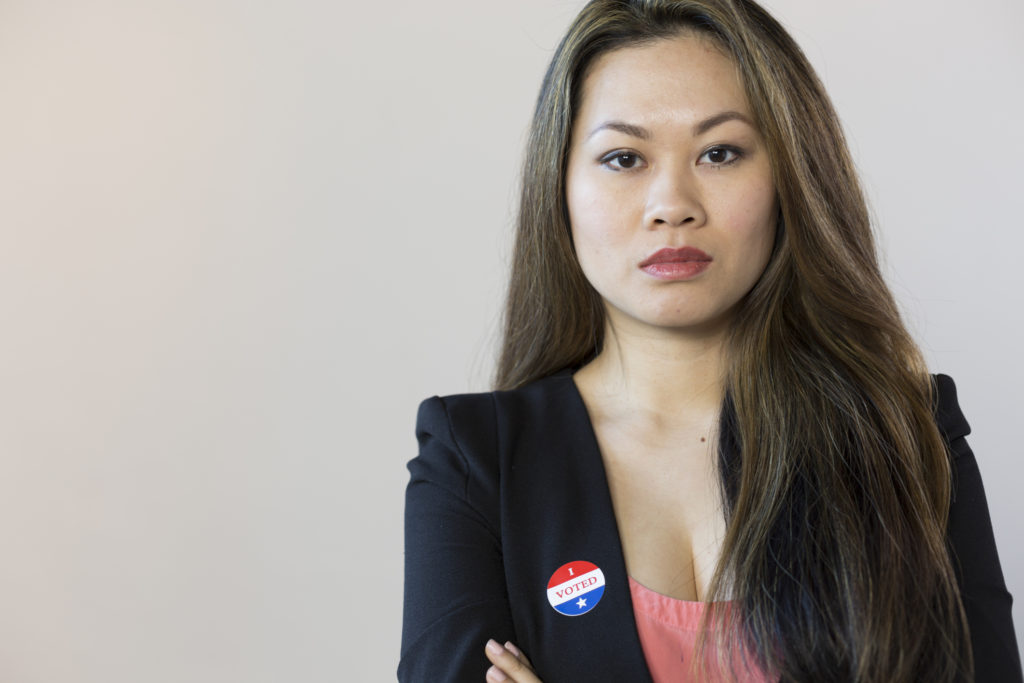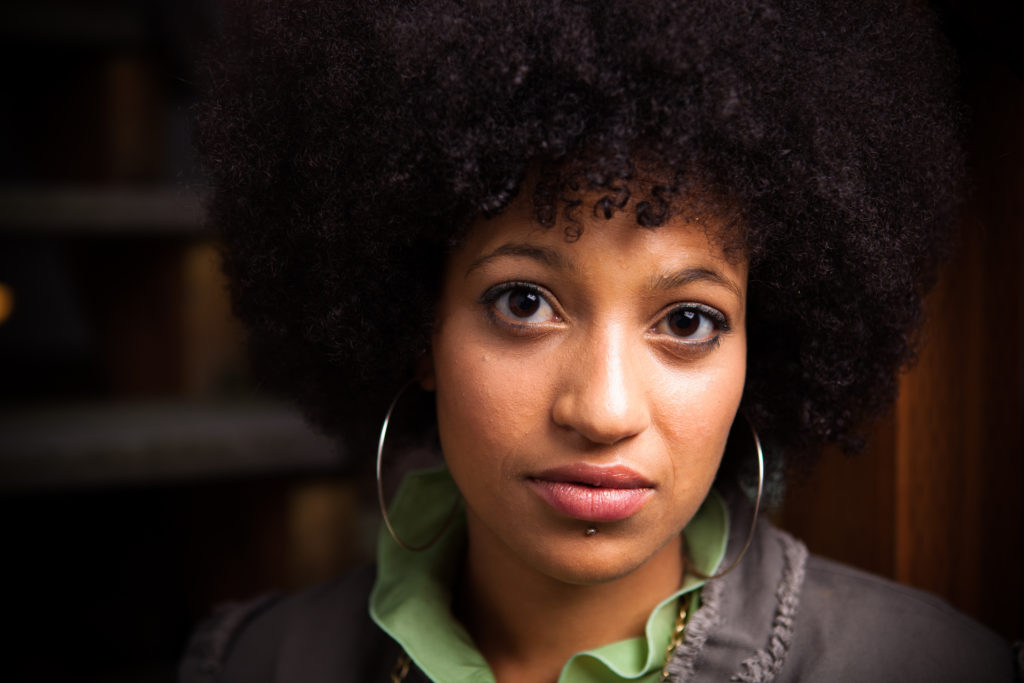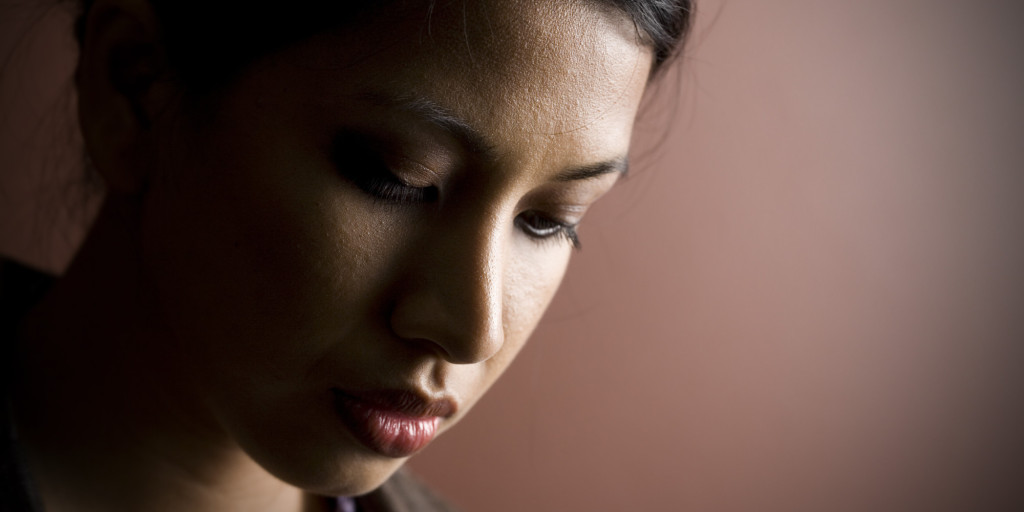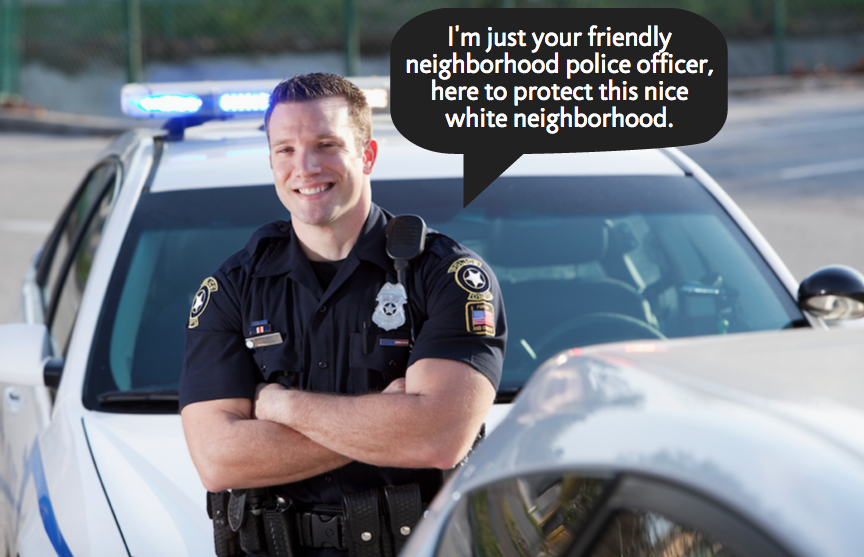Search results for: intimate partner violence
How to Recognize and Respond to Intimate Partner Violence
Our culture tells us that intimate relationships should be private. On too many occasions, that privacy hides violence and abuse. This infographic not only shares critical statistics, it also provides strategies for recognizing abusive relationship patterns, suggestions/resources for support, and examples of healthy relationship qualities.
Read MoreHow Violence Against Women Hurts Men (And 20 Things Men Can Do About It)
In 2005 I came out as transgender and transitioned to male. I am much happier as a man, but in transitioning I moved from a class of people most likely to be victimized to a class of individuals more likely to victimize someone else. I had become the enemy. And that got me thinking: Why don’t more men see violence against women as their issue?
Read MoreWorried Your Partner Is Emotionally Abusive? Check Out These 7 Warning Signs
There’s a misconception that abusive partners always use physical violence, which can make it hard to tell if your partner’s abusive. This comic can help you figure out what’s happening and what to do next.
Read More‘Don’t Make Us Look Bad’: The Invisibility of LGBTQIA+ Intimate Partner Violence
We’re taught that a “normal” relationship has a cisgender man and a cisgender woman. Same with a “normal” case of intimate partner violence. But reports of LGBTQIA+ intimate partner violence are on the rise. So why is LGBTQIA+ IPV so invisible? Let’s survey the scene, and get some essential guidelines for giving safe and affirming support to LGBTQIA+ IPV survivors.
Read More4 Ways to NOT Respond to Celebrity Intimate Partner Violence
“Why didn’t she just leave?” With Johnny Depp and Amber Heard as the latest high-profile domestic violence case, people are spreading damaging myths.
Read More12 Personal Rights Women Have in Intimate Relationships
This author was taught to always put others’ needs first. Everyone deserves these things in a relationship, and if you’re a woman, you can probably use these reminders.
Read More‘Be a Man?’ Watch Boys and Men Ages 5-50 Respond to This Common Phrase
Here’s what happened when boys and men of various ages were asked to respond to “be a man.” What does this phrase mean to you?
Read MoreNo, Feminists Do Not Enjoy Being the Victim
This author, like so many of us who spend our time fighting sexism, was charged with wanting to be a victim. Is it true? We do often seek to acknowledge the horrifying truth of how our culture mistreats women and other marginalized folks. But that doesn’t mean you’re “playing the victim.” Here’s some affirmation of how far that is from the truth.
Read MoreA Letter to Young Feminists Who Date Trump Supporters
This pattern of “agreeing to disagree” with a Trump supporter isn’t just “controversial” – it’s dangerous. This breakdown reveals what you might be missing.
Read More7 Reasons to Be Good to Yourself After Intimate Partner Violence
#4: “A lot of what you’ve been conditioned to believe about yourself isn’t true.” If you’ve been abused by a partner, do yourself the favor of receiving these messages.
Read More7 Ways Social Justice Language Can Become Abusive in Intimate Relationships
It’s dangerous when social justice ideas – the same ones that empower us – are used to harm people. Here are some signs that this is happening in your life or community.
Read More11 Truths Every Survivor of Intimate Partner Violence Needs to Know
If you’ve been through intimate partner violence, you can probably relate to the painful messages this author has heard – both from others and herself. Here’s the healing truth you deserve instead.
Read More5 Common Ways Our Communities Fail to Address Intimate Partner Violence
What this author witnessed is far too common – and what’s worse is that so many of us in social justice groups don’t know how to respond as bystanders to partner violence. Are any of these familiar to your community?
Read More4 Myths About Intimate Partner Violence in Lesbian Relationships
The idea that intimate partner violence occurs in lesbian relationships may seem ridiculous. But this belief isn’t only false; it’s damaging. It can prevent lesbians from seeking help when they are in an abusive relationship. After all, who’s going to believe them? Here are four myths about IPV in lesbian relationships that can prevent women from seeking help.
Read More20 Examples That Prove White Privilege Protects White People From the Police
You’ve heard some of the stories – but police targeting of people of color is more common than you may think. Here’s the outrageous truth of what’s really going on.
Read MoreHow I Survived Domestic Violence
People who don’t know I’m a survivor of domestic violence may be shocked. I’m a strong, loud-mouthed woman and a proud feminist. How could this happen to me? And yet to my horror, it did. Domestic violence can strike any of us. If you are being abused by your intimate partner, remember that you deserve better. You deserve love and respect. We all do. (Trigger Warning)
Read MoreFrom Manspreading to Mansplaining — 6 Ways Men Dominate the Spaces Around Them
Before you jump in with “Women do it, too!” or “It’s no big deal,” check out this info on how male entitlement relates to much bigger issues. We see #2 around here a lot.
Read More7 Things We Need to Stop Saying to Sexual Assault Survivors Immediately
Folks in the media are notorious for saying abysmal things about survivors of sexual violence. But for most survivors, it doesn’t take a media spotlight to beget insensitive, uninformed, and downright erroneous remarks about their experiences. Unfortunately, it’s something they face every day. So here are some things we should stop saying to survivors – immediately.
Read More160+ Examples of Male Privilege in All Areas of Life
How do we know male privilege is real? These everyday examples of gender inequality are a start. By naming these, we can start working to free ourselves and others from the impact.
Read MoreBeyond 50 Shades: The Reality Behind 3 Myths About BDSM
It’s important to discuss kink from a feminist perspective because of the harm that misinformation about our desires can cause. This misinformation can lead to feelings of disempowerment in one’s a/sexuality and relationships, and erardicating that should be part of the foundation of any intersectional feminist movement. So let’s bust three common myths about BDSM.
Read More

